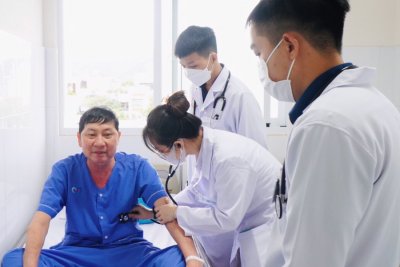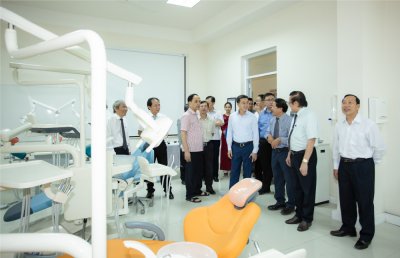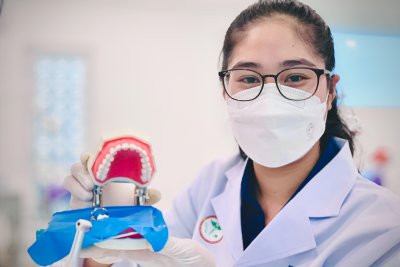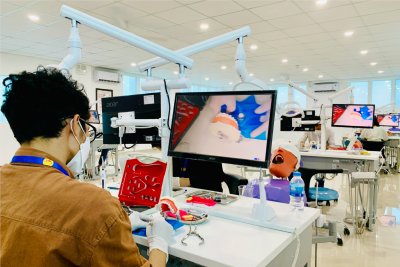Contact Admission
International Collaboration
Odonto-Stomatology
The Odonto–Stomatology (Dentistry) program prepares dentists with a solid scientific foundation, professional ethics, and the competence to diagnose, plan, and deliver comprehensive care for oral and maxillofacial conditions. The curriculum integrates biomedical sciences; foundational dentistry (dental anatomy, materials & instruments, occlusion); clinical specialties (endodontics, periodontics, prosthodontics, oral & maxillofacial surgery, orthodontics, pediatric dentistry); infection prevention and patient safety. Clinical exposure progresses from simulation and preclinical training to hospital/clinic rotations, with hands-on experience in digital dentistry (intraoral imaging & scanning, CAD/CAM) and evidence-based practice. Graduates meet national practice requirements and can pursue residency/specialty training, applied research, or careers across hospitals, private clinics, and community oral-health programs.


Students practice at the Hospital right from the first year Prof. Dr. Tran Van Thuan - Deputy Minister of Health visited
PCTU's Dental - Jaw - Facial practice room


Students practice at LAB . room A corner of the school's No. 1 dental practice room
Graduating students are awarded the degree of Odonto - Stomatology Doctor in accordance with the regulations of the Ministry of Education and Training and the Ministry of Health, in the regular undergraduate program.
| - Program: | Dentistry |
| - Major code: | 7720501 |
| - Education level | Undergraduate |
| - Training system | Regular |
| - Degree upon graduation | Doctor of Odonto - Stomatology |
| - Duration of training | 6 years |
With an educational philosophy of liberation and a training philosophy focused on adaptation to change, the university has developed an integrated training program with a practical internship component accounting for 70% of the curriculum.
With a learner-centered educational philosophy, students are encouraged to take ownership and exercise academic freedom. Instructors teach using approaches such as Problem-Based Learning (PBL) and Competency-Based Learning (CBL).
The curriculum is designed so that theory runs in parallel with practice and clinical placements. For each module, students progress through three stages:
Stage 1: Master theoretical knowledge, procedures, and principles from basic to advanced.
Stage 2: Experiment and practice on simulators; develop pre-clinical skills at the Simulation Hospital.
Stage 3: After becoming proficient in pre-clinical skills, begin hospital clinical rotations with supervised patient contact.
The Odonto–Stomatology (Dentistry) field offers a broad career pathway: graduates can start as general dentists in hospitals or private clinics, then specialize in areas such as endodontics, periodontics, prosthodontics, implant dentistry, orthodontics, pediatric dentistry, or oral–maxillofacial surgery. Beyond clinical care, opportunities include clinic management, digital dentistry and entrepreneurship (CAD/CAM, 3D printing), research and teaching, or consultancy for dental device/material companies. Rising demand for oral healthcare and rapid digitalization create strong job prospects, competitive income, and clear advancement tracks—provided graduates obtain a practice license, maintain CME, and uphold patient-safety–centered professionalism.













